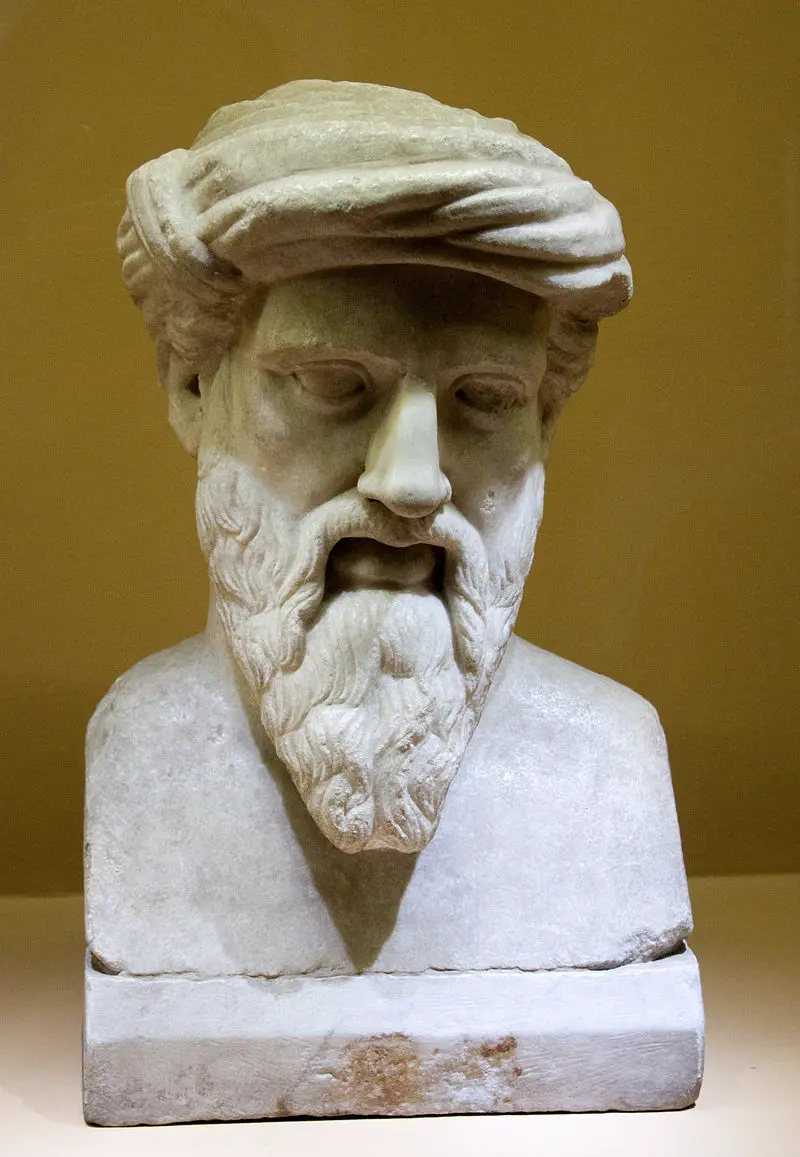Pythagoras

Pythagoras of Samos (Ancient Greek: Πυθαγόρας; c. 570 – c. 495 BC) was an ancient Ionian Greek philosopher, polymath, and founder of Pythagoreanism.
His political and religious teachings significantly influenced Magna Graecia and shaped the philosophical works of Plato and Aristotle, thereby impacting Western philosophy as a whole. While modern scholars debate his education and influences, most agree he traveled to Croton in southern Italy around 530 BC where he established a school whose initiates reportedly took vows of secrecy and embraced a communal, ascetic lifestyle. Ancient sources credited Pythagoras with numerous mathematical and scientific discoveries, including the Pythagorean theorem, Pythagorean tuning, the five regular solids, theory of proportions, Earth's sphericity, identifying the morning and evening stars as Venus, and dividing the globe into five climatic zones.
He is often considered the first person to call himself a philosopher ("lover of wisdom"). However, historians question whether Pythagoras personally made these discoveries, as many achievements attributed to him likely originated earlier or came from colleagues or successors like Hippasus and Philolaus. The teaching most confidently associated with Pythagoras is "transmigration of souls" or metempsychosis – the belief that every soul is immortal and enters a new body after death.
He may have also developed the concept of musica universalis, proposing that planets move according to mathematical ratios, creating an inaudible cosmic symphony. Following Croton's victory over Sybaris around 510 BC, Pythagoras's followers clashed with democracy advocates, resulting in the burning of their meeting houses. Pythagoras either died during this persecution or escaped to Metapontum where he later died.
Pythagoras profoundly influenced Plato, whose dialogues (especially Timaeus) incorporate Pythagorean concepts. A major revival of his teachings occurred during the first century BC among Middle Platonists, coinciding with Neopythagoreanism's emergence. Throughout the Middle Ages, Pythagoras remained highly regarded, and his ideas influenced scientists like Nicolaus Copernicus, Johannes Kepler, and Isaac Newton.
Pythagorean symbolism featured prominently in early modern European esotericism, and his teachings as depicted in Ovid's Metamorphoses later influenced the modern vegetarian movement.


